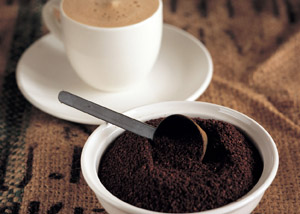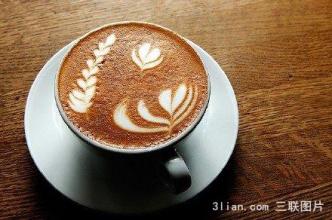Introduction of coffee beans in San Cristobal area
One of the many plantations in Merida at the foot of the Andes belongs to the Pablo and Pulido families, an ancient farm that has been allowed to downsize. Since taking over the farm in the early 1980s, the Pulido family has harvested coffee from existing bourbon coffee trees and planted new trees to expand the farm.
The area around Caracas, once famous for its coffee, has resumed production. Another Jean and Andries from Turgua. Tippica Coffee trees are also planted on the Andres Boulton plantation.
Venezuelan coffee tastes different from other coffee in Latin America. It is delicious, light and less sour than traditional coffee, which makes it not only blended but also distinctive.
Venezuelan coffee beans
The taste is smooth and sweet. Compared with other coffee in Latin America, Venezuelan coffee is lighter, full-grained, sour, sweet and deep.
Venezuela sells "socialist" coffee in Venezuelan cafes.
Recently, there is a particularly interesting phenomenon in the Venezuelan Cafe, a state-run coffee chain in Venezuela: the store provides customers with two contrastive price lists. Each kind of coffee here has two prices of "socialism" and "capitalism". In this special way, cafes are intended to show customers the disadvantages of a free market and the benefits of regulating the economy.
At a Venezuelan Cafe in the center of Caracas, Venezuela's capital, the "socialist" price of a large cup of coffee on the menu is 2.5 Bolivar. In addition, the menu lists the "capitalist" price of the coffee sold elsewhere at 5 Bolivar (7.74 yuan). It is said that this is not only to provide discounted coffee to Venezuelans, but also to promote the left-wing politics of Venezuelan President Hugo Chavez.
The cafe's practice has won the support of many Venezuelan citizens, and the queue of guests has been extended to the road. Many people say they would be happier if the cafe offered more cheap coffee. "the cafe is a symbol of national policy and reflects the country's efforts to eliminate exploitation of the poor," said Kristobar Isturitz, a 70-year-old interior decorator who savoured coffee with friends on the patio. "
At the same time, critics argue that the Venezuelan Cafe and other similar measures are just populist gimmicks that mask some of Venezuela's deep-seated economic problems

Important Notice :
前街咖啡 FrontStreet Coffee has moved to new addredd:
FrontStreet Coffee Address: 315,Donghua East Road,GuangZhou
Tel:020 38364473
- Prev

Pure and soft Dominica coffee Santo Domingo coffee
The Dominican Republic also had a history of revolution and poverty, but now it has implemented democratic elections and the country is relatively stable. In the early 18th century, coffee was introduced to Domiga from Martinique, and fine coffee was produced in the north represented by Hibao and in the south, including Okayabani Santo Domingo. Among them, coffee from Santo Domingo and Barney
- Next

Hawaiian Kona Coffee Bean introduction to the Manoa Valley area of Oahu
Although Hawaii is often affected by tornadoes, the climatic conditions are very suitable for the coffee industry. There is plenty of rain and sunshine, and there is no worry of frost. In addition, there is a strange natural phenomenon called free shade. On most days, around 2 o'clock in the afternoon, white clouds appear in the sky, providing the necessary shade for the coffee tree
Related
- Guji coffee producing area of Guji, Ethiopia: Humbela, Shakiso, Wulaga
- What is the most expensive variety of Qiloso in BOP multi-variety group?
- How to store the coffee beans bought home?
- Why are Yemeni coffee beans so rare now?
- Ethiopian Sidamo all Red Fruit Sun Sun Santa Vini Coffee beans
- SOE is mostly sour? What does it mean? Is it a single bean? what's the difference between it and Italian blending?
- Is Italian coffee beans suitable for making hand-brewed coffee?
- How to choose coffee beans when making cold coffee? What kind of coffee beans are suitable for making cold coffee?
- Just entered the pit to make coffee, what kind of coffee beans should be chosen?
- Can only Japan buy real Blue Mountain Coffee? What are authentic Jamaican Blue Mountain coffee beans?

